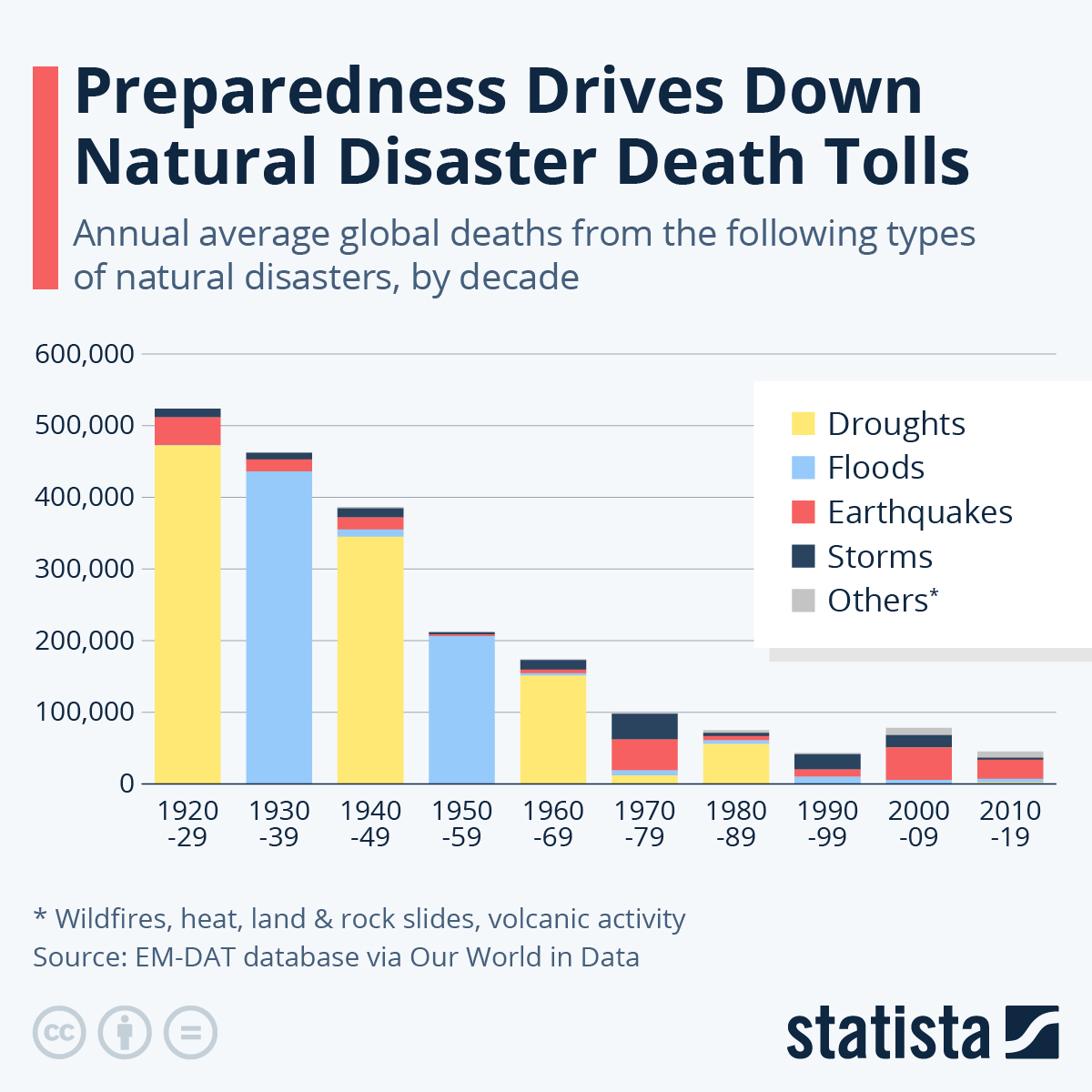As disaster preparedness has improved over the decades, fewer people have actually died in flooding - one of the biggest killers among natural catastrophes historically, but also a type of disaster with many ways to mitigate it. This includes improved dam infrastructure and monitoring, flood and storm path modeling and early detection as well as evacuation plans and awareness campaigns.
Policy experts in Libya, where at least 5,000 people are believed to have died after a major flood resulting from a Mediterranean storm, are accusing the post-civil war country's divided governments of having been unprepared for the disaster. Libya's poor infrastructure is now also holding back rescue and aid efforts.
Like floods, droughts kill much fewer people now than in previous decades due to improvements in food security and better international aid. The two types of catastrophes were responsible for a majority of disaster deaths globally up until the 1960s, numbers published by Our World in Data show. In between 1970 and 1975, three flood and storm events in Bangladesh, China and Vietnam killed around 630,000 people in total. In 1887, 1931 and 1939, major river floods in China still killed in between and estimated 500,000 and 4 million people each. Likewise, droughts in China, India and Bangladesh killed millions between 1900 and 1965. In 1983, a major famine in Ethiopia once more drove up drought deaths for the decade.
Earthquakes and volcanic eruptions are harder to predict with certainty, but also cause fewer deaths globally. The 1976 quake in Tangshan, China, caused 277,000 deaths, while the 2004 boxing day earthquake and tsunami in the Indian Ocean and the 2010 Haiti earthquake caused high average numbers of deaths in these decades.





















